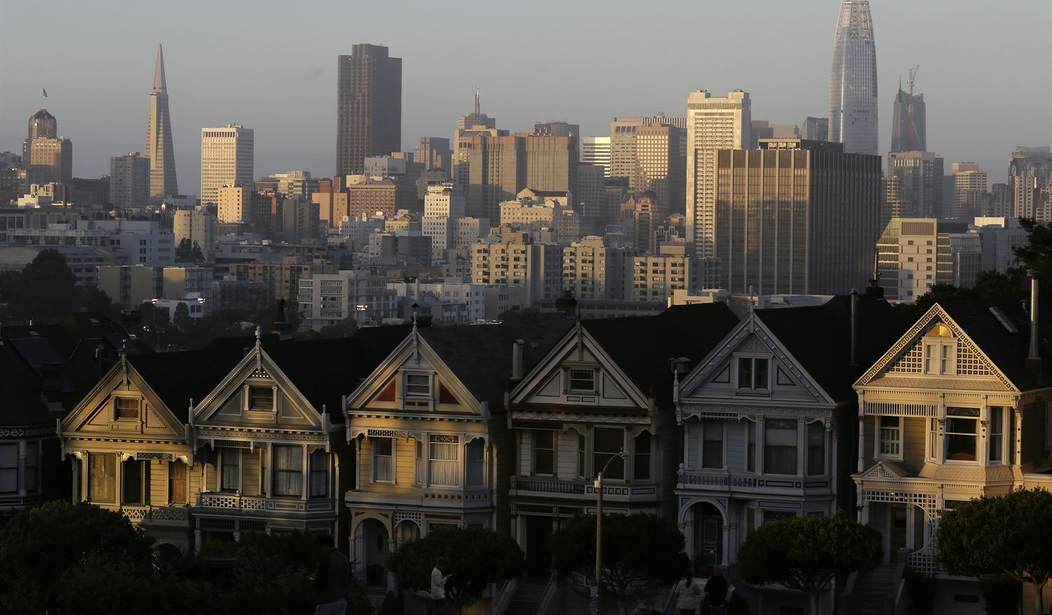Homelessness, people urinating in front of resident’s houses, impossibly-priced housing — San Fransisco, once one of the most beautiful and pleasant cities in America, is being destroyed by an ideology that promotes “permissiveness.”
This “anything goes” mentality has led to an amazing epidemic of shoplifting. It’s amazing because it’s unheard of anywhere else — even in California — and because it’s become organized.
Thieves enter stores, take whatever they want, and walk out. Store security guards no longer even bother to pursue offenders out of fear that the encounter will become violent. They take as much as the legal limit on retail theft allows. And then they go to another store and do the same thing.
The thieves sell their shoplifted goods in the open in little sidewalk markets.
“Half of Walgreens was on the sidewalk. I’m not kidding,” Ahsha Safaí, a member of the board of supervisors said. “I was blown away. I’ve never seen anything like it in this city.”
According to the San Francisco Chronicle, no fewer than 17 Walgreens Drug Stores have closed in the last 5 years.
Theft in Walgreens’ San Francisco stores is four times the average for stores elsewhere in the country, and the chain spends 35 times more on security guards in the city than elsewhere, Cunningham said.
At CVS, 42% of losses in the Bay Area came from 12 stores in San Francisco, which are only 8% of the market share, said Brendan Dugan, director of organized retail crime and corporate investigations at the hearing.
So why not confront the criminals?
CVS and Walgreens said they train employees to be engaged and visible to prevent theft, but to not confront thieves directly when it could turn violent. CVS security guards in San Francisco have been regularly assaulted, especially at the Seventh and Market streets location which is now closed, Dugan said. Some businesses instead hire costly off-duty police officers.
Although the majority of CVS shoplifting incidents in the city are by opportunists, Dugan said, professional crime accounts for 85% of the company’s dollar losses.
The problem began in 2014 when Californians approved Proposition 47 that dramatically lowered the fines for shoplifting. But it hasn’t reached epidemic proportions anywhere else in the state except San Fransisco.
A statement from Safeway read at Thursday’s hearing blamed Prop. 47, which lowered penalties for thefts under $950, for “dramatic increases” in shoplifting losses. Safaí said he was proud of Prop. 47 and supported criminal justice reform and rehabilitation, but also urged prosecution for organized crime and more community ambassadors to prevent opportunistic shoplifting.
Why didn’t anyone else think of hiring “community ambassadors” to stop shoplifting? Brilliant.
Mr. Safai may be ignorant of the solution but he knows the reason for the spike in shoplifting. “If there are no consequences for their actions, then you invite the behavior. Over and over,” he said. So the solution is to remove consequences and invite lawbreaking?
Chronic shoplifters claim that businesses don’t “lose” any money from retail theft because they’re insured. Aside from skyrocketing insurance costs, Walgreens notes it spends 35 times more on security in the city than anywhere else in America. That’s a cost of doing business that adds to the cost of every product in the store.
But Walgreens is a big chain and can “afford it,” right? Ask the old folks in San Francisco who used one of the 17 closed Walgreens stores in their neighborhoods to pick up their drugs and other necessities. They certainly can’t afford it.
Permissive attitudes about crime is turning cities into unlivable hell holes, fit only for gangs, drug addicts, and homeless people. The rich will have their enclaves of sanity, culture, and civilization. But life for the rest continues to degrade and the people are voting with their feet and moving out.










Join the conversation as a VIP Member